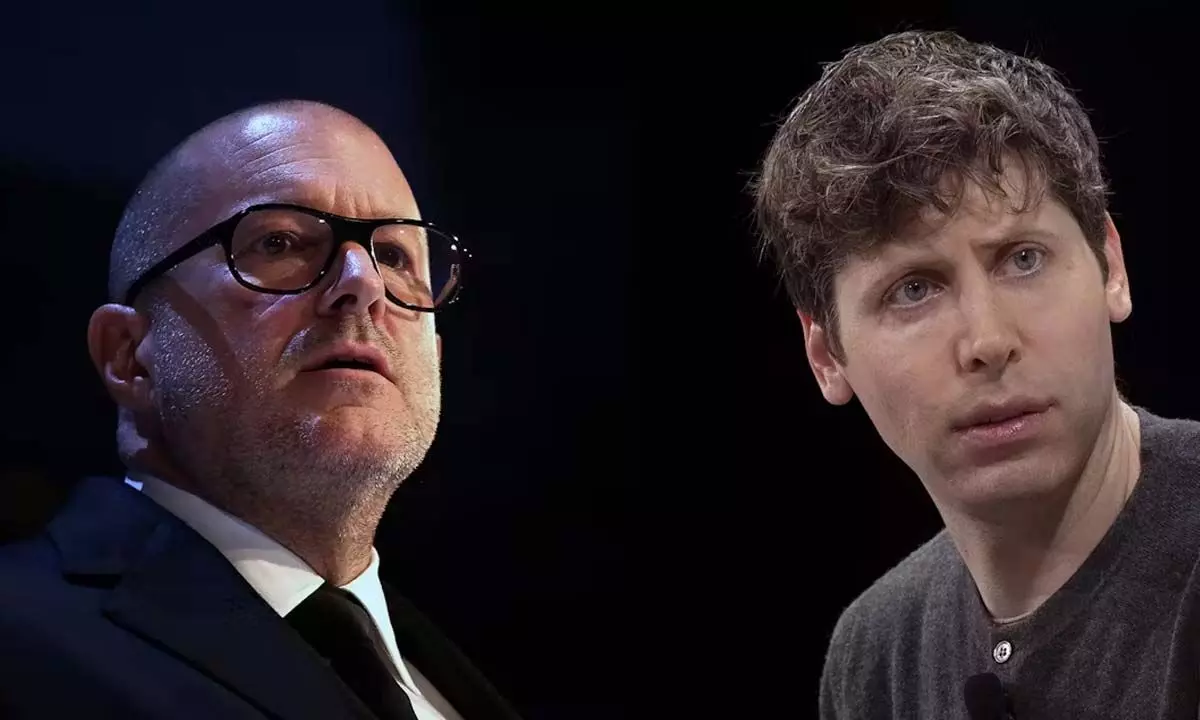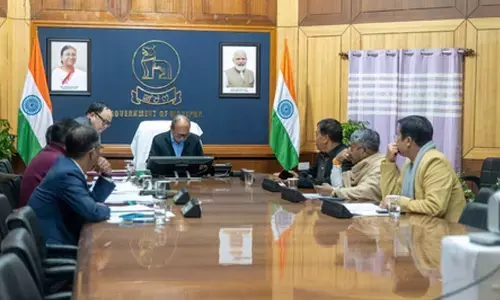Sam Altman and Jony Ive Unite to Build Revolutionary AI Hardware — A Modern-Day iPhone in the Making?

OpenAI acquires Jony Ive’s AI startup to design revolutionary AI hardware,aiming to redefine tech beyond Apple’s traditional boundaries.
In what could be a game-changing moment for consumertechnology, OpenAI has announced the full acquisition of io, a startupco-founded by iconic designer Jony Ive, for a staggering $6.5 billion. Thegoal? To build a revolutionary new category of AI-powered hardware — andpossibly create the kind of modern-day tech breakthrough that even Apple hasn’tdelivered yet.
Jony Ive, the celebrated creative mind behind the design oflegendary Apple products like the iPhone, iPad, and iPod, left Apple in 2019 tostart his own design firm, LoveFrom. Since then, he has focused on selectdesign projects ranging from the Linn Sondek LP12 turntable to the coronationemblem for King Charles III. But in 2023, he took a decisive step back into thetech world by co-founding io, a startup focused solely on AI hardwareinnovation.
Now, OpenAI — the creator of the viral ChatGPT chatbot and aleading force in artificial intelligence — has taken full ownership of io.OpenAI initially acquired a 23% stake in the company last year. With this newacquisition, valued at $6.5 billion, it has bought the remaining share, makingit one of the most significant hardware investments by any AI company to date.While LoveFrom and Ive will remain independent, they will now lead the designfor all OpenAI hardware projects going forward.
A Device Cloaked in Mystery, Fueled by Excitement
Though the project has been publicly acknowledged by bothAltman and Ive for nearly two years, the exact nature of their joint creationremains a tightly held secret. In a blog post confirming the acquisition,OpenAI mentioned it is working on a “family of devices”, but offered no furtherdetails.
What is known, however, is that the device isn’t expected tobe a traditional smartphone. Rather, it's likely to be a companion device,built with AI at its core. Ive has previously expressed a distaste for screens,suggesting the product may avoid a traditional display altogether — a designdirection reminiscent of failed concepts like the Humane AI Pin and Rabbit R1,which also experimented with screenless or minimal-screen hardware.
Still, expectations remain high. Industry insiders believethat, with Ive’s visionary design and Altman’s AI expertise, the project couldfinally strike the right balance between form, function, and intelligence. Theacquisition is expected to accelerate product development, bringing ideas fromthe drawing board to market sooner — potentially by late 2026.
A Strategic Shift: From Software Powerhouse to HardwareDisruptor
For OpenAI, this marks a critical evolution. Until now, ithas operated as a pure software entity, relying on hardware partners —sometimes even competitors — to distribute its services. But if OpenAI wants tocompete in the trillion-dollar league and build truly integrated AIexperiences, owning the hardware pipeline is essential.
As OpenAI CEO Sam Altman reportedly told colleagues, theacquisition is “the chance to do the biggest thing we’ve ever done as a companyhere.” The strategy echoes the vision of Apple co-founder Steve Jobs, whofamously championed the idea that “companies that want to make great softwareshould make their own hardware.”
This holistic approach enables tighter control over the userexperience and can help eliminate outside interference — a philosophy that hashelped Apple maintain its dominance for decades. Yet, as advanced as Apple’secosystem is, it has struggled to lead the AI revolution. That’s where OpenAIsees its opportunity.
With ChatGPT reportedly serving between 400 to 800 millionweekly active users as of May 2025, OpenAI has already claimed a stronghold inthe software space. Now, it aims to cement that dominance in hardware — notjust by being another tech brand, but by potentially redefining how humansinteract with machines in a post-smartphone world.
What’s Next?
The tech community is abuzz with speculation. Will thisunnamed device be wearable? Will it feature advanced voice interfaces? Will ithave no screen at all? While the details remain elusive, what’s clear is thatOpenAI is preparing to make a bold leap into consumer technology, with Jony Iveat the helm of its design.
As the world waits, comparisons to the original iPhone arealready surfacing — and with good reason. That device transformed not justApple but the entire technology landscape. Altman and Ive may not be buildingan “iPhone 2.0,” but if their collaboration succeeds, they might deliver thenext big leap in personal technology — something even Apple hasn’t dared to doyet.
The countdown has begun. All eyes are now on what could bethe AI era’s defining moment — and it’s coming not from Cupertino, but from acollaboration that’s rewriting the rules.










